We offer service to future shipowners who want to know exactly the state of the boat they want to acquire.
In this way, by means of a complete report, they have valuable information for making the final decision. Advice on the purchase. Professional evaluation of the condition of the boat.
Charter companies and professionals require our inspection and appraisal services to prepare both the sales of their used boats and the acquisition of new units.
In this way they have an impartial document that guarantees the real condition of the boat to the future buyer.
Most insurance companies request a status and condition report from the insured, with the economic valuation of the boat. Our professionals are in charge of making it based on the condition and standards of the market.
The commercial transactions managed by the professionals of the agencies and the independent brokers trust us to carry out an inspection and appraisal report of the vessel that is the subject of the contract. In this way, and in an arbitrary way, our company acts as an arbitrator in the negotiations.
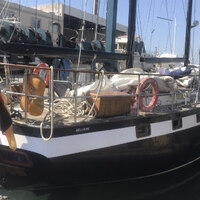
The hull is the fundamental container of the boat. We pay special attention to both the exterior and the interior: frames, beams, girders, etc.
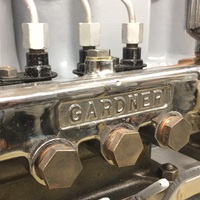
The engine is undoubtedly one of the essential elements for the propulsion of the ship. Our technicians perform an inspection that may include, upon request, compression and oil analysis.
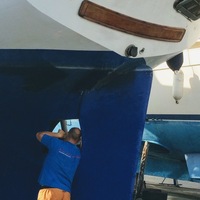
The rudder, the propeller, and all the elements that ensure maneuverability must be in perfect condition for navigation. This item is thoroughly inspected and any defects are noted on the report.
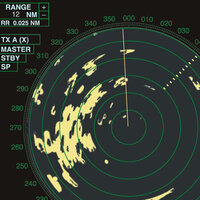
The navigation equipment, whether electronic or the sails, ropes and mast, must be subject to continuous review by the owner of the boat. Our team will check the condition of the elements and present you with a report of operation or damage for your evaluation.
Spending money on a proper inspection gives you long-term peace of mind. The pre-purchase inspection can also be used for insurance purposes or to generate a useful work list. Regardless of the type of inspection you need, always go to a professional organization. Ask for prices for an inspection.
An inspection is also important when buying a low-value boat, as a protective measure against buying a boat that appears to be a bargain, but is actually in need of expensive repair work. And finally, if you need financing to help buy the boat, a status report can be a very useful asset.
Even if a used boat appears to be in good condition and almost not used, it may have hidden structural defects that will affect both the value of the boat and its seaworthiness. Likewise, it is not recommended to buy a new boat without having it inspected to make sure there are no obvious major problems and to help define the list of items to be rated. In any case, many apparently new boats have been used as sample units at trade shows and, therefore, may have been subject to groundings, knocks or other damage.
It also happens that an insurance company or marine mortgage loan provider requires an acknowledgment of receipt to quantify your risk.
Inspections are not limited to large, valuable or used boats. There is no minimum size or value because the purchase of a boat generally reflects approximately the same proportion of a person's income.
Any boat, as well as a boat to be sold to another owner, should be inspected. Think that you are going to invest a good amount of money and you can't go wrong.
Likewise, both new and used boats require inspection. Not only builders make mistakes, but some new boats may have been stuck in or near the water for months or even years waiting for a buyer to jump in.
There are many types of inspections, including insurance surveys and financial inspections. If you want to move a boat, you can also request a pre-shipment and post-shipment inspection to make sure your boat arrives at its destination in perfect condition.
The most comprehensive is a full condition inspection or condition report, which can also be referred to as a pre-purchase inspection. This will take into account as many aspects of the boat as possible, from structural integrity and safety of systems to aesthetic details. It is designed to identify the good and bad points of a boat, giving the customer a very good idea of any problems that need to be corrected and to what extent they should be reflected in the purchase price.
Of course, different ships require different areas of consideration. But all investigations should include an assessment of critical components, including the hull, propulsion equipment and the condition of all rigging. They tend to involve a bottom-up approach to judging whether a boat is fundamentally sound and, to that end, will encompass an inspection of the hull and transom for cracks, osmosis and impact damage. They will also include an inspection of the engine and drive to help reveal any problems with mounts, shafts, oil leaks or connections. And there should also be an inspection of critical control systems, covers, accessories, communication and safety equipment.
However, a basic inspection is likely to be fairly low-key, so if you need a greater degree of detail, discuss this with the surveyor and the seller before setting a date. Assuming you can afford the additional cost and the seller is happy for the inspection to become more intrusive, an inspection really can be as thorough as you need.
There are two reasons not to rely on an inspection that has already been performed: first, an inspection can only reflect the condition of the vessel on the day it was performed.
Firstly, a survey can only reflect the condition of the vessel on the day it was carried out. The ship, for example, may have had a serious grounding the next day which, of course, will not be reflected in the report.
Second, since you did not commission the report, you cannot know if the report was done in an objective and unbiased manner. You must trust the source and make sure that the inspector examines all areas in an unbiased and professional manner.
Your inspection will include recommendations indicating which areas require attention or are likely to require attention. These recommendations tend to fall into three different categories. If serious defects are found, they must be rectified before the boat can be used again; These can cover a wide range of problems, from structural defects that require a major redesign of the hull area, to damaged railings or friezes that make them dangerous. but that could be fixed in a ridiculous amount of material and half a day.
Many of the recommendations fall into the intermediate category, where the work can be done later in conjunction with other scheduled maintenance tasks. In most cases, this would be at the end of the season, in preparation for relaunch the following year. There may also be minor defects that are reported, but do not need to be addressed if they are cosmetic.
The inspector/inspector may also identify early indicators of a problem, such as osmosis, that need to be monitored over time, but may not require immediate repairs.
There are several aspects to choosing a surveyor. First, they should be knowledgeable and experienced in inspecting the size, style and construction of the boat you are considering. You should also know that they will produce a clear report in which the recommendations are easy to understand.
A reputable surveyor will be a member of a professional body, such as the College of Merchant Navy Officers or the Nautical College of any University, and will possess the appropriate qualifications. These organizations often qualify their former members and provide good training.
It may also be helpful to look at copies of previous reports of more or less similar vessels, eliminating the name and class of the vessel, if applicable. What you are looking for here is clarity of report and recommendations; ideally, the reader should be in no doubt as to what the next course of action should be.
Even with a complete condition report, there are aspects of the vessel that the surveyor cannot inspect. Therefore, he must describe the extent or limitation of the test that was performed. The surveyors will not be able to access anything that is not readily visible; For example, he/she will lift the floorboards without pegs to inspect the steel cage area, but will not remove the boards, bulkheads, or toilet partitions. However, if the owner, or owner's representative, is available, he may do this to give the inspector access to otherwise inaccessible areas.
You can expect an inspection of the sailing yacht assembly at deck level, but the surveyor will not go up the mast for a detailed inspection. Similarly, you can also expect a brief external inspection of the engine and other machinery.
Generally, a surveyor will recommend a specialist in the relevant field to examine in detail specific elements of a vessel, such as the machinery or equipment of a sailing yacht. An expert can be engaged to provide a detailed report of the rigging and equipment, while the engine mechanic's report, including oil sample analysis, will give a good indication of the condition of the engine, drive and previous level of maintenance. This is especially valuable for motor yachts, where the cost of replacing or overhauling the engine can be substantial in relation to the excess value of the boat.
Non-destructive testing methods, such as ultrasound, have long been used to determine the remaining thickness of steel hulls and are now increasingly being used to allow surveyors to get an idea of the structure of composite materials such as fiberglass and more exotic forms of construction.
In particular, ultrasound can detect voids in the mold and areas that are not sufficiently wetted by the plastic, whereas in the past this could only be tested by randomly sampling the core, i.e. drilling holes in the can. However, this usually comes at a separate price.
Buying a defective boat can have a number of direct consequences, from loss of the boat or injury to others, to property damage or even death. However, a pre-purchase inspection is not an opportunity to shirk responsibility and consult an expert to make a purchase decision. It is simply a report on the condition of a boat at a given time.
A good surveyor can advise you on what to look for so you can best choose the right boat for the right price and do so from a location of relative information and safety. Just make sure you choose a reputable professional expert with relevant experience.
The buyer of a used yacht is expected to pay for everything related to the survey. This includes grounding for inspection and, if necessary, launching or, in the case of an already grounded boat, grounding for sea trials.
When it comes to sea trials, although this is not usually part of a regular inspection, a contract for the purchase of a used yacht often allows for sea trials.
ITB SURVEYORS methodology incorporates boat specifications, sales and profits in real time, allowing market valuations of boats in all types of markets. Our model is continually updated and recalibrated to best fit our reports and assessments.

Hiring a yacht refit Project Manager can save time and money in the long run, as they can identify and resolve potential issues before they become major and costly problems. A yacht refit Project Manager is a professional with experience in managing yacht projects. Their role is to ensure that the entire process is carried out effectively, coordinating and supervising all stages of the refit. The Project Manager is responsible for ensuring that the refit is carried out within the agreed budget and timeframe, and that all quality and safety requirements are met. They are also responsible for coordinating different teams, including designers, builders, mechanics, and electricians, among others.
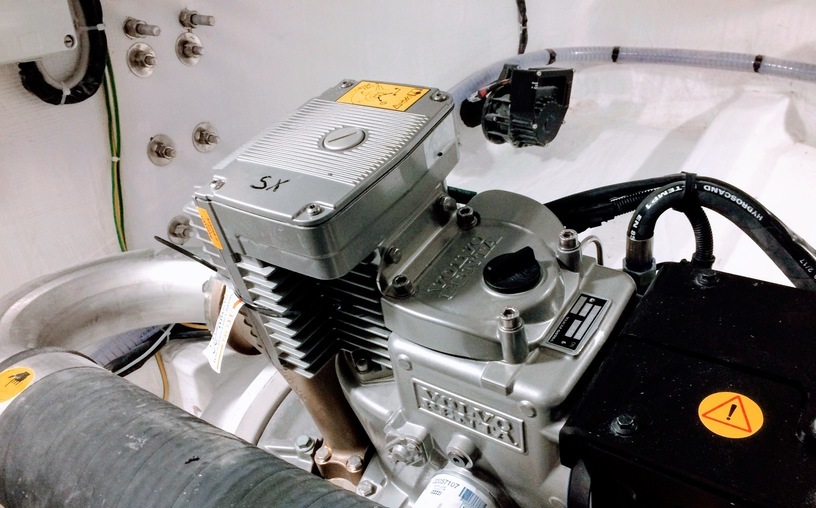
Maintenance is one thing that keeps any mechanical equipment or machinery going. Weather it is a small machine or a large structure, efficient maintenance can help with prolonged life and favorable outcome. On a ship, maintenance is one thing that keeps machinery up to date and is smooth running condition. We do take care of all.

Before signing the MoA, there are several important stages. Once a prospective sale is identified, the main terms are considered, with negotiations often led by the brokers. Before signing the MoA, buyers may seek a basic inspection of the vessel and copies of the main certificates. A ship sale and purchase transaction culminates with its “closing.” Here the buyer and seller (usually on the same day) exchange documents, make payment, and physically deliver and transfer the vessel.
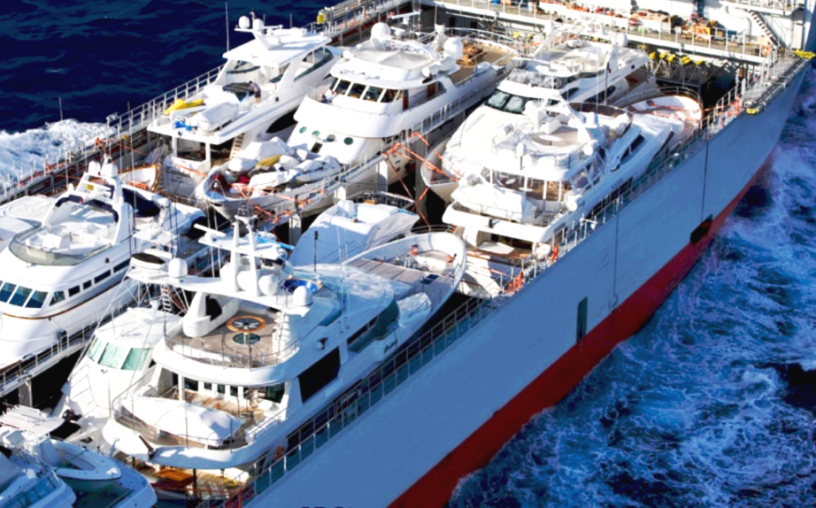
We ship your vessel to over 300 ports in more than 150 countries – continentally and intercontinentally. We have advantageous agreements with the main transport companies to send your boat to any part of the world. Our partners are specialists in taking care of your boat and providing the proper care to keep her safe even in the worst imaginable scenarios. We take care of everything, from the documentation to the loading and unloading of the ship at the port of destination.
Mrs. Ariadna Gasch
Base: Barcelona
+34 607 88 50 60
info@itbsurveyors.com
Mrs. Ariadna Gasch
Base: Palma de Mallorca
+34 607 88 50 60
balearics@itbsurveyors.com
Mr. Agustín Suárez
Base: Lanzarote
+34 644 81 88 45
canary@itbsurveyors.com